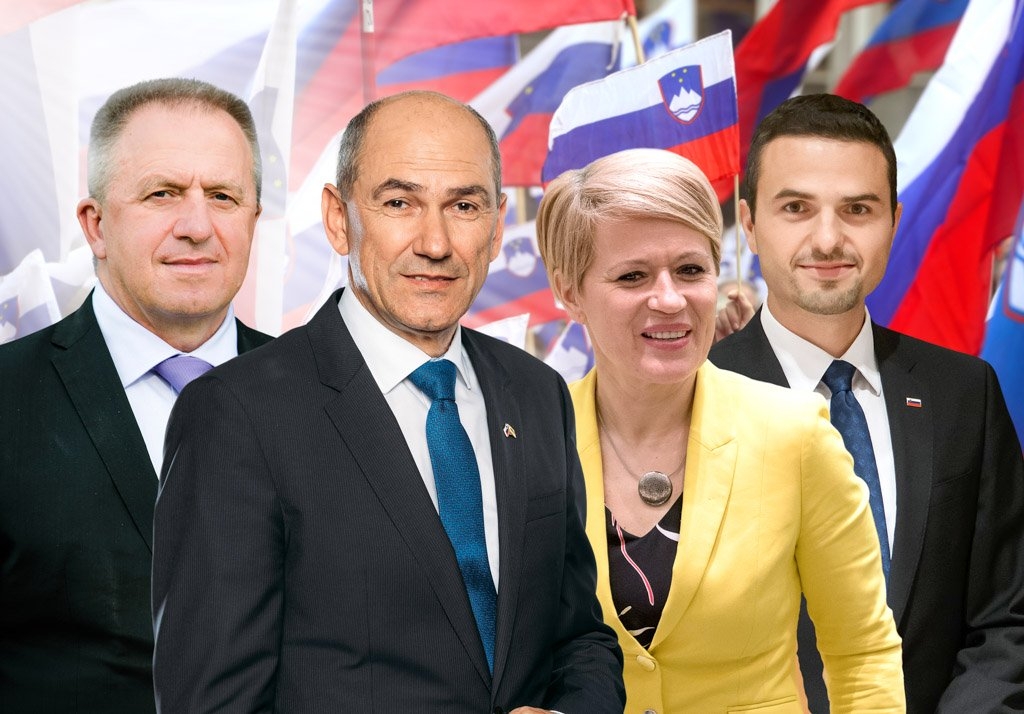Good wine needs no bush. Public opinion polls clearly show that Slovenian citizens approve of the work of Janša’s Government, as the majority is not in favour of early elections, which was recently confirmed in a public opinion poll, conducted for the newspaper Delo. In spite of all the hysteria in the mainstream media and the inflated scandals they are publishing, the people have noticed the good work of the ruling coalition, which did everything it could to protect the economy and help individual social subgroups during the pandemic of the novel coronavirus. It adopted four large-scale aid packages – the anti-corona legislative packages, with which it also helped the agriculture in Slovenia.
We have already written about what the government of Janez Janša has done in the social, economic and some other fields, with the adoption of the anti-corona legislative packages, the intention of which was to mitigate the economic and social consequences of the epidemic, and in this article, we will focus on how the current government team has helped agriculture. We will present the measures – the financial assistance they offered to the farmers, the reduction or write-off of the contributions for the pension and disability insurance, the reduction of the payment of the cadastral income tax for 2020, compensation for the payments for the fishermen’s moorings, and the reduction of the payments of water reimbursements to aquaculture farmers. The first package in particular, which was adopted with the aim of mitigating the effects of the new coronavirus epidemic, contained many useful solutions in the field of agriculture.
In the first anti-corona legislative package, the Government of the Republic of Slovenia wrote that the farmers are to be exempted from paying contributions: “In order to help the economy, the measure provides an exemption from the payment of the social security contributions for the self-employed, farmers and religious employees for the period from March 13th, 202,0 to May 31st, 2020.” However, the Government of the Republic of Slovenia stated that the obligation of the beneficiaries is “to submit a special statement to claim the extraordinary assistance in the form of a basic income, and for the exemption from the payment of contributions.” The government also wrote that the relevant statement had to be sent through the Financial of the Republic of Slovenia’s Information System. “Payments of the contributions that have been exempted in accordance with this article will be paid for the beneficiaries by the state, so they are still entitled to all of the insurance rights, and the Institute’s revenues are not reduced, as the loss is covered by the Republic of Slovenia.” Given that only a single statement was required for this, the Janša Government severely de-bureaucratized the process.
The government allocated a monthly basic income for the farmers: 350 euros for March and 700 euros for April and May each
The government also stated that a monthly basic income was to be paid to the self-employed, the religious employees and farmers, which amounted to 350 euros for the month of March, and 700 euros for April and May each. Among the amendments to the first legislative package, it was stated that “the Ministry included the one-time solidarity allowance for farmers in the amount of 150 euros, and increased the amount, for which the unemployed persons can perform seasonal work in agriculture, without their unemployment benefits being reduced. This amount has been increased from 200 euros on a monthly basis to 400 euros.”
The government had also decided to reduce the payment of the tax on cadastral income for 2020: “For 2020, the tax base from the potential market income for cultivation on land is set at 50 percent of the cadastral income, as determined by the regulations on determining the cadastral income as of June 30th, 2020, and the tax base from potential market income for production in beehives in the amount of 35 percent of the flat-rate estimate of income per beehive, as determined by the regulations on determining the cadastral income as of June 30th, 2020.” At the same time, it was also stated that “for 2020, the holders of commercial fishing licenses for the fishing vessels, listed under the commercial fishing licenses, are entitled to compensation for the payment for the berth in the fishing ports, in the amount of 40 percent of the total amount.”
The Janša Government did not forget about the aquaculture farmers either: “Holders of water rights for the special use of water for the cultivation of freshwater and marine organisms, whose opportunities to use their right were reduced, and have thus had reduced revenue opportunities due to the epidemic, are exempted from paying the water reimbursement for the period from March 16th, 2020 to May 31st, 2020.” In the second anti-corona legislative package, which entered into force on May 1st, 2020, the Government of the Republic of Slovenia wrote that “the self-employed, religious employees and farmers who do part-time work, are exempt from paying the social contributions in a proportional share, and are entitled to monthly basic income.”
They also stated that the farmers over the age of 65 who were not the recipients of pensions were entitled to a one-off solidarity allowance of 150 euros. The third anti-corona legislative package states that the introduction of tourist vouchers, in the amount of 200 euros for adults, and minors in the amount of 50 euros, will also help tourist farms. The vouchers include payment for bed and breakfast and are valid until December 31st, 2020.

